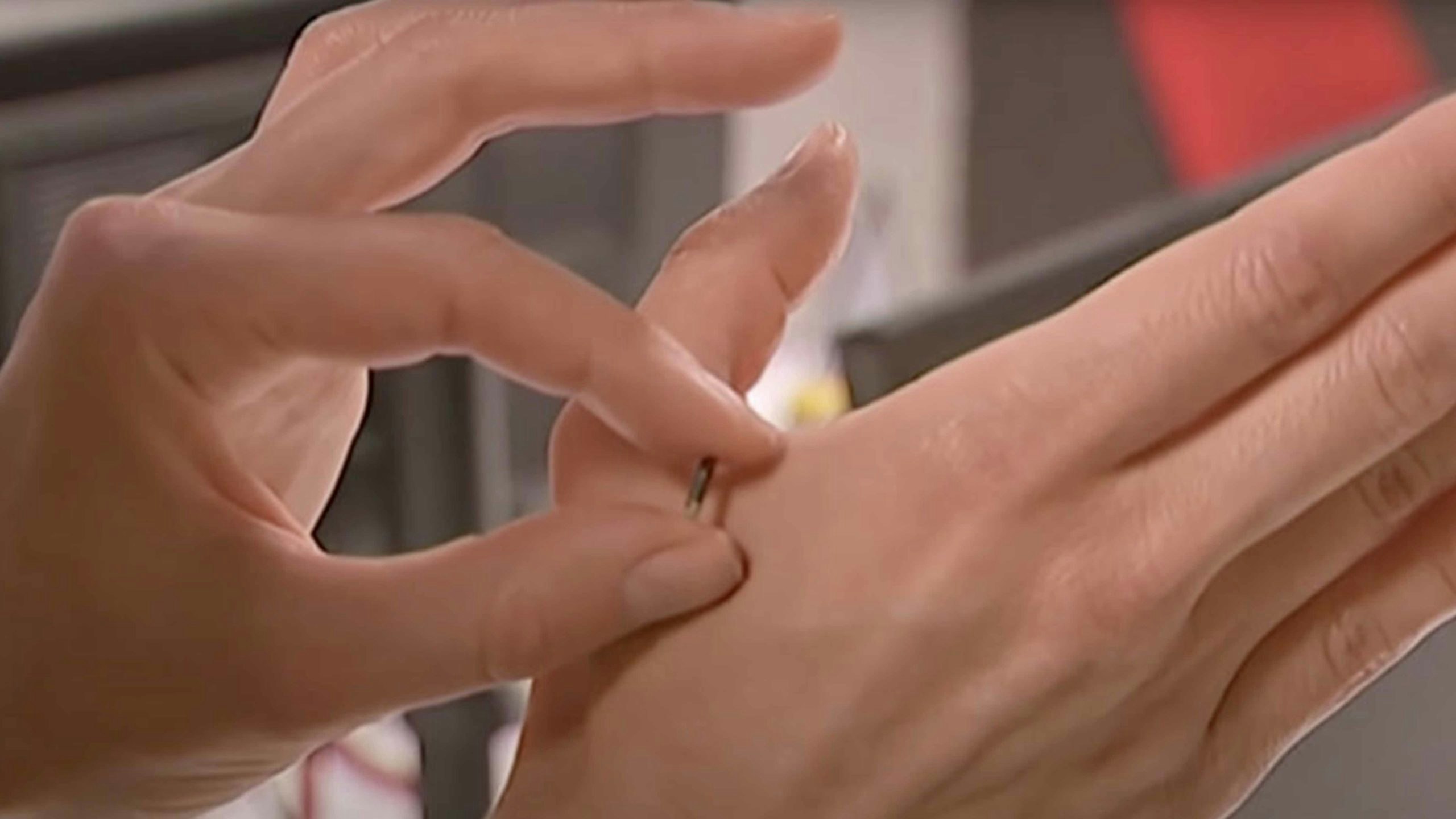A state lawmaker who pushed doing away with daylight saving time, fiercely fought COVID-19 vaccine mandates and has never shied away from challenging legislative leadership has a new attention-grabbing bill up his sleeve.
State Sen. Dan Laursen, R-Powell, submitted legislation Wednesday that would prohibit employers from requiring employees have microchips implanted in their bodies.
The bill, titled “Employees-Forced Microchip Implantation Prohibited,” also provides guidelines for employers if staff voluntarily want to be microchipped.
Serious Legislation
Laursen has already recruited a supporting cast of conservative co-sponsors on the bill, including state Sens. Tim French, R-Powell, Troy McKeown, R-Gillette, and Cheri Steinmetz, R-Lingle; and Reps. Jeremy Haroldson, R-Wheatland, Rachel Rodriguez-Williams, R-Cody, and Tomi Strock, R-Douglas.
Incoming Rep. Daniel Singh, R-Cheyenne, who has co-sponsored the bill, says the proposal is an opportunity for the Wyoming Legislature to get ahead of a problem before it materializes.
“I see it as a protection of individual medical rights,” he said. “I believe that as technology develops, we need to create legislation necessary before it’s becoming a problem.”
How Relevant?
The prospect of forcing people to have microchips implanted in them may seem outrageous or more suited as part of the plot of a futuristic sci-fi thriller, but it’s already been addressed in at nearly a dozen U.S. states.
In 2021, Indiana became the 11th state to ban forced microchipping.
Although there are no documented instances of any American employer requiring employees be microchipped, there have been a number of cases where workers have voluntarily had chips inserted into their bodies.
The primary use for the chips in workplace settings so far has been for automating rudimentary tasks such as entering buildings, using vending machines and serving as a password for computer logins, which all can be completed with the wave of a hand, much like a keycard.
Wisconsin Was First
In 2017, a Wisconsin technology company received worldwide attention when about 50 of its employees voluntarily had microchips implanted between the thumb and forefinger on one hand.
More than a decade earlier in 2006, Wisconsin also was the first state to ban forced use of microchips by employers. That was two years after the Federal Drug Administration approved implantable chips for humans, and long since veterinarians started using them on animals to help owners find their lost pets.
Only For Employers In Wyoming
The Wyoming law actually doesn’t go as far as seven other states, which prohibit all forced microchipping.
Laursen’s bill only applies to employers, so Wyoming parents would still be able to microchip their children and spouses could still microchip each other, along with other applications.
The chips are about the size of a grain of rice and are promoted as making life easier at the office.
“You get used to it; it’s easy,” one employee remarked in a 2018 MIT Technology Review story.
One staff member estimated he used his chip about 10-15 times a day. Another expressed frustration when the RFID reader on a vending machine went down a few months prior, preventing the use of his chip to buy soda and salty snacks.
“It’s just become such a part of my routine,” he said.
Breach Of Trust
Many microchipping skeptics cite how people who receive the implants will have their privacy and data incredibly exposed, including the potential for being hacked.
People Management, a UK-based employment research firm, says information collected through the chips in almost all cases would be personal and could include sensitive health-related details.
“Outside of a few extreme situations, there currently seems to be no obvious benefit to employers over conventional access or payment technology, and the risks are too big,” wrote Allison Crabtree in a 2022 People Management op-ed.
This kind of exposure could lead to a breach of trust between employers and employees and discrimination as far as how the technology and data from the microchips is used.
Similar Concerns As Mask Mandates
While employer-required vaccine mandates are still legal in Wyoming, microchipping has no ties to any health concerns.
Singh said he wants to prevent future scenarios in Wyoming comparable to the mask and vaccine mandates issued in response to the COVID-19 pandemic. Many conservatives in Wyoming, like Laursen, vehemently oppose mandates.
“I don’t want to see people having to deal with the same type of ethical problems,” Singh said.
How Far Is Too Far?
According to MarketWatch, a 2019 Nevada bill would also have banned voluntary implantation of the chips but was later amended to only ban coerced implants.
Laursen’s bill addresses guidelines for voluntary implanting microchips. It also allows employers to request employees be microchipped, but not require it.
Employees agreeing to the procedure must provide written consent for an implant and retain the right to have the chip removed at any time, which must happen within 30 days of a request for removal being made.
All microchips must be removed within 30 days of an employee terminating his or her relationship with a company, if that employee wants it removed. If an someone doesn’t want it removed, they can keep it.
The employer must pay all costs involved with the chips and disclose to employees all data maintained on it as well as how it will be used.
If the bill passes the Legislature and is signed by Gov. Mark Gordon, the new law would go into effect July 1.





